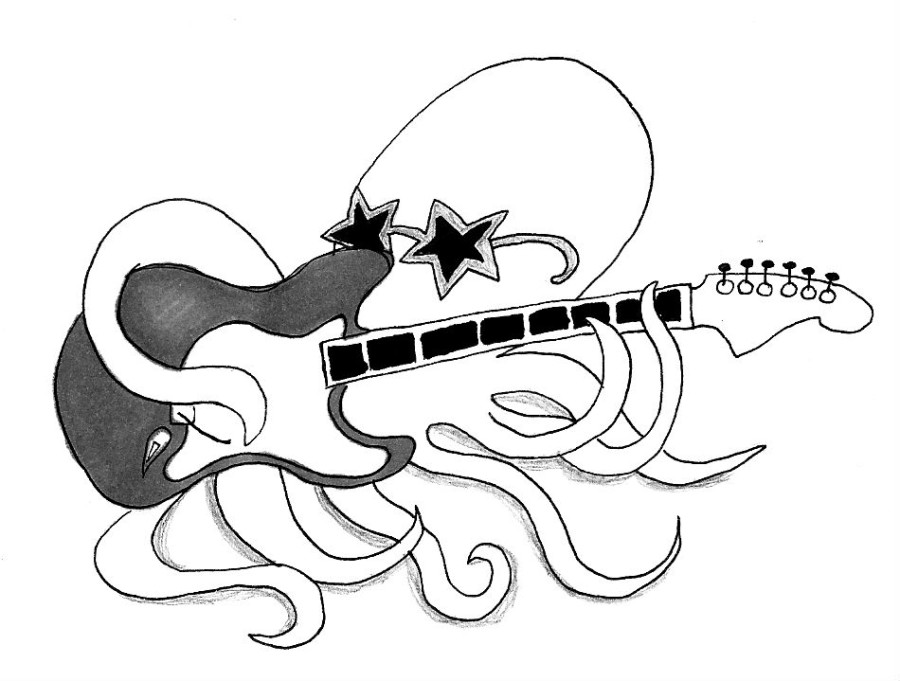In front of a sign that reads “Take One Piece of Fruit and One Dessert Only” in Jewett dining hall, a student piles fruit into his backpack, looks up to see no one is watching and grabs a few cookies before heading out the door. This isn’t breaking news–it’s just one of many instances of minor food theft that occur daily at Whitman.
The campus culture seems, comparatively speaking, a morally conscious one. Students take ethics classes and have the reputation of keeping open minds. So what makes stealing from dining halls socially acceptable?
At Whitman, all underclassmen must buy semester-long meal plans from Bon Appétit. Because this is so expensive, no one wants to be burdened by spending extra money at a grocery store. Taking things like tea and milk from the dining halls is more convenient. With a tight budget in mind, most students want to get their money’s worth from each meal at the dining halls. Plus, the “all you can eat” plans make stealing seem more justified.
First-year Emily Davis expresses the most widespread view among students.
“We do pay a considerable amount for food, so as long as we aren’t taking huge quantities then it seems alright. Like, a couple muffins or pieces of fruit are okay,” she said.
Stealing in moderation seems to be the social agreement between students.
“At the dining hall, you are paying for all of the food that’s made available to you. It’s all you can eat, whereas Reid is not,” said first-year Katie Hudson.
Yet the reasoning goes further than this.
It seems the combination of the “all you can eat” mentality and the current to-go culture is what makes stealing from the dining hall socially acceptable. Hudson also considers the logic of convenience. The meal hours are limited, making it more difficult for students to fit meals into their schedules.
“Dining hall hours are restrictive. I understand that they have to be, but at the beginning of the year, I would eat at 5:30 p.m. and be hungry again at 10 p.m.,” Hudson said. “If it’s all you can eat, does it really matter if you’re eating it in the dining hall rather than in your room?”
In the past, Bon Appétit was not always so to-go friendly. Ten years ago, students were not allowed to take anything out of a dining hall; it was all you could eat as long as you ate it there.
“It used to be a police battle, almost,” said Susan Todhunter, manager of Prentiss dining hall. “As our culture evolved into more of a ‘to-go’ culture, it changed the dynamic of the dining halls,” Todhunter said.
Now, Bon Appétit is more concerned with its relationship with students, but this is hard to maintain while still preventing students from stealing extra meals or food items. Staff members address people on an individual basis if necessary, but would rather not spend time policing. Thus, the policy remains fairly relaxed.
“I think the real difference is that in [Prentiss], you can take food, and likely no one will say, ‘Hey, what are you doing?'” said sophomore Brian van Oppen, explaining the difference between Reid’s Café 66 and the dining halls.
At Reid, most students are more hesitant to steal meals and to-go items, and view such behavior as a greater risk.
“When it gets pretty crowded, students sometimes slip drinks into their backpacks or take snacks from the espresso stand. Or someone will pay for one meal, then their friend goes up and takes two. But almost always when I confront students, they tend to panic a little and not say much,” said Michelle Ikerd, a barista at the espresso stand.
The set prices and café ambiance make the atmosphere in Reid more socially restricting.
“At Reid, there’s a fixed price for each specific meal, which defines your limits,” said sophomore Ian Lambie.
The flex dollar rather than meal swipe system makes Reid feel more like a restaurant and thus farther away from the Whitman bubble.
“If I were to not pay for food at Reid, there would definitely be a sense of guilt. Reid feels more café-like; it resembles a more real-life place, and from the time we’re little, we’re told not to steal from places like that,” said sophomore Sergio Garcia.










